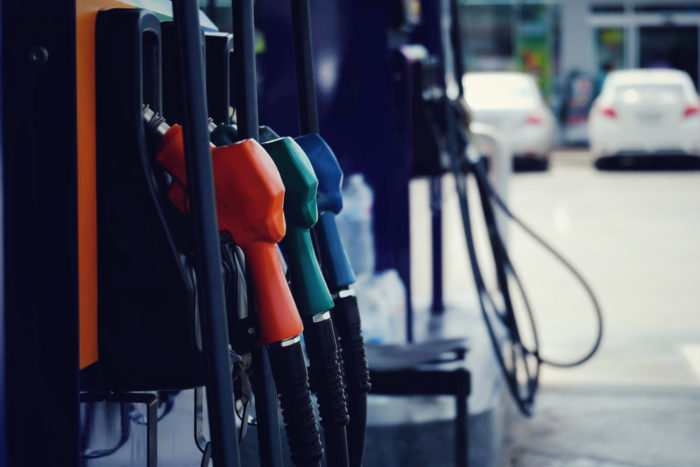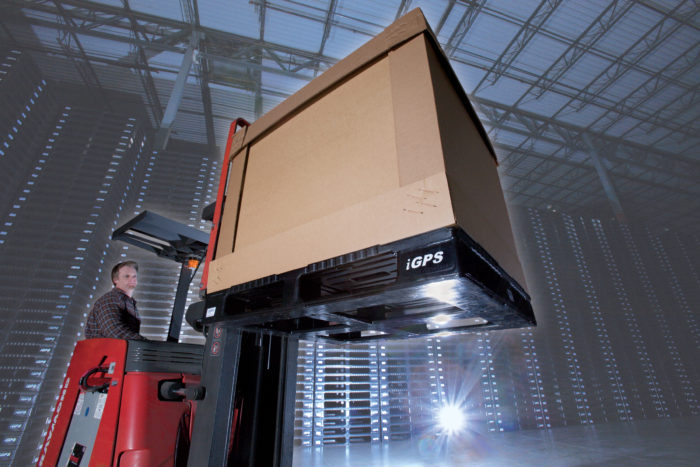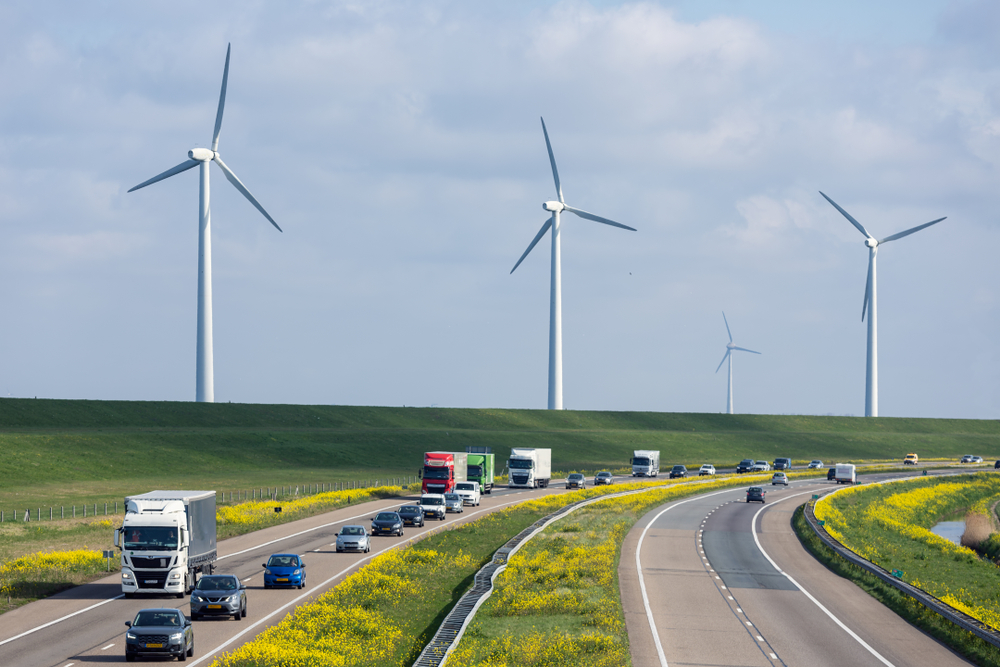Transportation is the single biggest contributor to carbon emissions and accounts for 28 percent of all energy consumption in the U.S. The most obvious solutions for making freight more sustainable seem simple on their face: reduce load weight and improve route efficiency. Making these changes also lowers the cost of transportation, so that when supply chain managers lighten their loads and optimize their routes, they can both reduce their carbon footprint and save money.
Yet, while these solutions may seem simple, managing them can be quite complex. We’ll offer some tips for making shipping in your supply chain more sustainable and suggest additional simple steps, such as switching to plastic pallet pooling, that immediately increase freight sustainability and lower your Total Cost of Business (TCOB).
Making Freight More Sustainable: Current Trends and Tips
 In 2018, U.S. diesel fuel consumption produced 461 million metric tons of carbon dioxide (CO2), much of this from the transportation of products and materials within the supply chain. While it’s not possible to completely stop consuming fuel and producing CO2, measures like lightening loads and improving route efficiency can help reduce the impact of transportation on the environment.
In 2018, U.S. diesel fuel consumption produced 461 million metric tons of carbon dioxide (CO2), much of this from the transportation of products and materials within the supply chain. While it’s not possible to completely stop consuming fuel and producing CO2, measures like lightening loads and improving route efficiency can help reduce the impact of transportation on the environment.
Making Products and Packaging Lighter
It’s estimated that for every 100 pounds a vehicle carries, fuel efficiency decreases up to two percent. For this reason, it’s important to minimize unnecessary weight, such as the weight added by packaging materials.
Another way to reduce transportation costs and greenhouse gas emissions is to ship products in a more concentrated form.
One of these strategies involves rethinking traditional packaging that may have grabbed consumer attention in the aisle but is not necessary in an e-commerce environment. Things like novelty packaging, theft deterrent solutions, and companion materials add weight without adding value, which is why many retailers are paring down these features. An example of this in practice is Amazon’s “Frustration-Free Packaging” program. In an effort to cut down on packaging waste, the company created a set of guidelines for vendors to follow. To date, Amazon estimates they’ve eliminated 244,000 tons of packaging and 500 million boxes.
Another way to reduce transportation costs and greenhouse gas emissions is to ship products in a more concentrated form. Manufacturers of products like soap, shampoo, laundry detergents, toothpaste, and cleaning solutions are increasingly seeking to concentrate these products or reformulate them so that less water–which is heavy, inactive, and can be supplied by the consumer–is shipped as part of the product.
Reducing Truck Weight
A sophisticated, albeit more complex, option for reducing truckload weight involves reducing the weight of the vehicles themselves. This idea is increasing in popularity along with the use of materials like carbon fiber and the development of enhanced automotive designs. By using sturdy, lightweight materials in engineer-optimized, lightweight, and hybrid electric designs, overall fuel usage can be reduced regardless of the weight of the load being transported.
In most cases, reducing load weight and improving routes will require significant investments.
Improving Route Efficiency
Route efficiency has an obvious effect on both how much fuel is used during a trip and the time it takes to transport a truckload of products. Companies are using many strategies to improve transportation in this regard, from decentralized fulfillment operations to high-tech route planning software that takes every possible route into consideration in order to increase fuel efficiency. Driver feedback systems that monitor how quickly drivers accelerate, as well as other pertinent behaviors, can also measure potential opportunities for improvement in order to cut costs and ultimately make transportation more sustainable.
In most cases, reducing load weight and improving routes will require significant investments, as companies switch over to more efficient vehicle designs and implement complex logistical systems. However, one change can contribute to making freight more sustainable without a large upfront investment in time or money: plastic pallet pooling.
The Role of Plastic Pallet Pooling in Freight Optimization
 When you consider that a top-quality plastic pallet typically weighs less than 50 pounds, while a wood block pallet can weigh more than 80, it’s easy to see how plastic pallets can contribute to a reduction in emissions and transportation costs. When lightweight plastic pallets are used, truckloads that cube out will be significantly lighter, improving fuel consumption, reducing carbon emissions, and ultimately lowering transportation costs. Plastic pallets also positively impact costs over the long-term, as lighter loads lead to less wear and tear on vehicles. Even for heavy truckloads limited by weight, plastic pallets can reduce the number of trips needed to deliver inventory by ensuring that a greater percentage of the load’s weight is salable products rather than pallet weight.
When you consider that a top-quality plastic pallet typically weighs less than 50 pounds, while a wood block pallet can weigh more than 80, it’s easy to see how plastic pallets can contribute to a reduction in emissions and transportation costs. When lightweight plastic pallets are used, truckloads that cube out will be significantly lighter, improving fuel consumption, reducing carbon emissions, and ultimately lowering transportation costs. Plastic pallets also positively impact costs over the long-term, as lighter loads lead to less wear and tear on vehicles. Even for heavy truckloads limited by weight, plastic pallets can reduce the number of trips needed to deliver inventory by ensuring that a greater percentage of the load’s weight is salable products rather than pallet weight.
The keys to making freight more sustainable are lower load weight and improved route planning.
Plastic pallets rented within a pooling model, rather than owned, offer an even more sustainable option. A pooling company will use their own route planning software to ensure that the movement of pallets is optimized within their network of customers to reduce empty legs and partial truckloads, indirectly reducing a company’s carbon footprint. Pooling is the best possible model for companies looking to manage transportation costs and improve sustainability.
The keys to making freight more sustainable are lower load weight and improved route planning. While many options for meeting these goals are expensive long-term projects, such as redesigning packaging and updating vehicle fleets, switching to plastic pallet pooling is one option that is both cost-effective and easy to implement. Companies concerned about their carbon footprint and their transportation costs should consider plastic pallets as a simple choice to improve both.
Renting iGPS plastic pallets can make freight more sustainable and reduce the cost of transportation for your business. For more information on how easily our program can lower your TCOB while supporting your sustainability goals, contact us at 1-800-884-0225, email a specialist at switch@igps.net, or visit our contact page.



